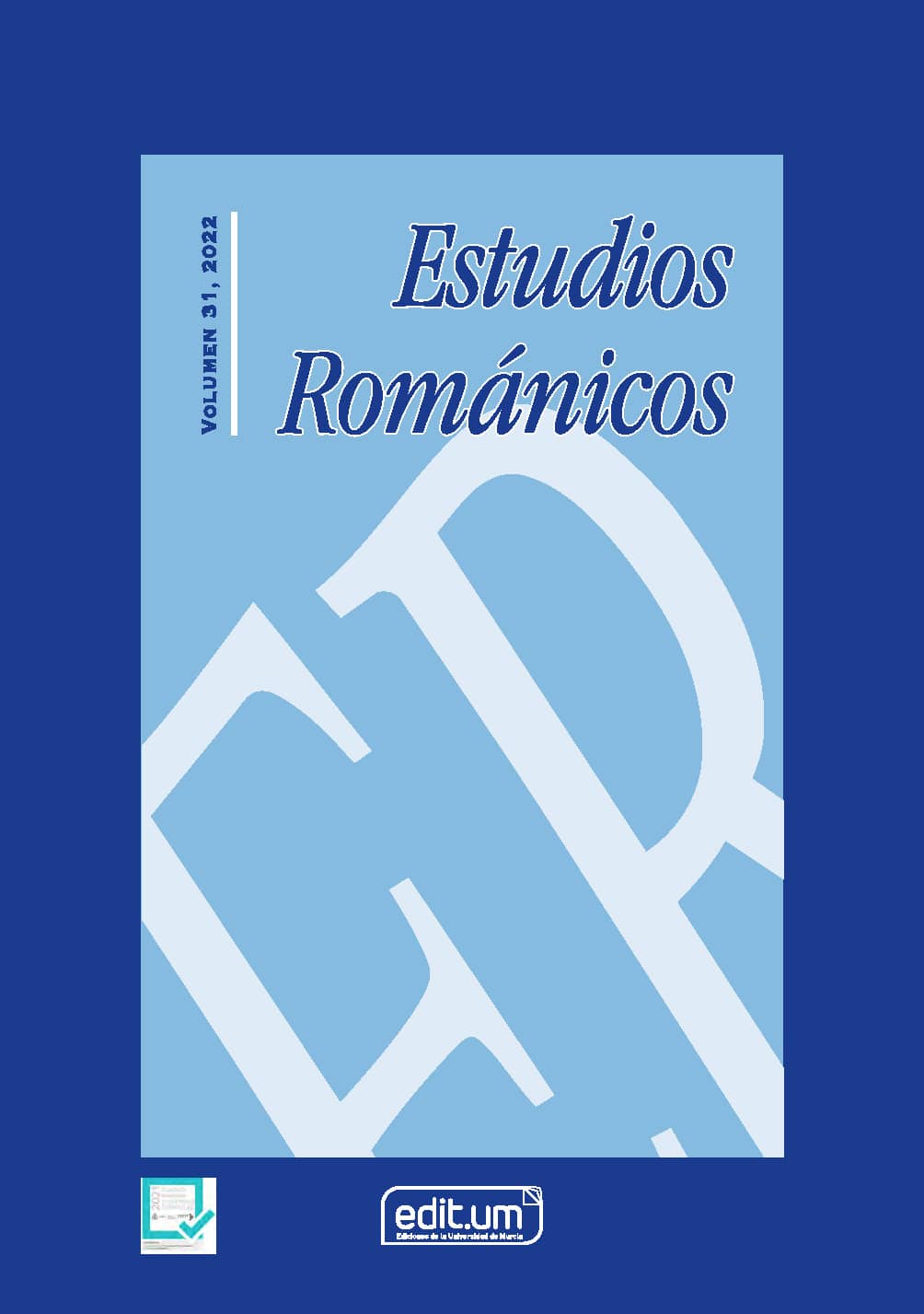Neology in the field of tourism, between general language and LSP
Abstract
In spite of its multidisciplinarity, tourism can be considered as a specialized field as it has its own terminology. In this paper, we analyze the vocabulary of tourism from both a terminological and a neological point of view, based on a specialized corpus realized at the University of Verona. Among the different word-formation processes, compounds formed by « tourisme + ADJ » prove to be a productive syntactic pattern and justify the interest of an incremental model. For several reasons, neologisms coined from this pattern are not always catachrestic innovations. On the limit between specialized and non-specialized discourse, the neology of tourism allows to grasp the societal transformations and the evolution of a discipline, tourism itself, still in search of recognition
Downloads
References
AGORNI, Mirella (2012) : « Introduzione. Prospettive linguistiche e traduttologiche negli studi sul turismo », AGORNI, Mirella (ed), Prospettive linguistiche e traduttologiche negli studi sul turismo. Milan : Franco Angeli, 7-21.
AQUILINA, Manuelle ; PUGNIÈRE-SAAVEDRA, Frédéric ; MAHÉO, Claire (2018) (eds) : La communication touristique : vers de nouvelles interfaces ? Du discours aux représentations territoriales. Québec : Presses de l’Université Laval.
BÉJOINT, Henri ; THOIRON, Philippe (2010) : « La terminologie, une question de termes ? ». Meta : journal des traducteurs / Meta : Translators’ journal, 55-1, 105-118.
CALVI, Maria Vittoria (2007) : « Ricerca linguistica e turismo », DE STASIO, Clotilde ; PALUSCI, Oriana (eds), The Languages of Tourism. Turismo e mediazione. Milan : Unicopli, 203-207.
CHESSA, Francesca (2009) : « Dictionnaire de spécialité en communication interculturelle : une analyse terminologique de la langue du tourisme », CHESSA, Francesca ; DOTOLI, Giovanni (eds.), Les dictionnaires de spécialité : une ouverture sur le monde. Actes des Journées Italiennes des Dictionnaires – Troisièmes Journées, Cagliari 3-4 octobre 2008. Fasano : Schena Editore, 177-185.
GOTTI, Maurizio (2006) : « The language of tourism as specialised discourse », PALUSCI, Oriana ; FRANCESCONI, Sabrina (eds.), Translating Tourism. Linguistic/cultural representations. Trento : Università degli Studi di Trento, 15-34.
HUMBLEY, John (2018) : La néologie terminologique. Limoges : Lambert-Lucas.
JUGUET, Isabelle ; PEYROUTET, Claude (2015) : Le tourisme en France. Paris : Nathan.
KAUFMAN, Stefan (2004) : « Le microsystème notionnel du tourisme et sa description terminographique », Romanistica Wratislaviensia, 51, 49-73.
MACHALEK, Tomáš (2020) : KonText : Advanced and Flexible Corpus Query Interface, in Proceedings of LREC 2020, pp. 7005-7010. [http://www.lrec-conf.org/proceedings/lrec2020/pdf/2020.lrec-1.865.pdf ; 14/01/2022].
MORISSET, Lucie K. ; SARRASIN, Bruno ; ÉTHIER, Guillaume (2012) (eds.) : Épistémologie des études touristiques. Montréal : Presses de l’Université du Québec, 9-23.
NIGRO, Maria Giovanna (2006) : Il linguaggio specialistico del turismo. Aspetti storici, teorici e traduttivi. Rome : Aracne.
PETIT, Gérard (2001) : « L’introuvable identité du terme technique ». Revue française de linguistique appliquée, VI, 63-79. [https://doi.org/10.3917/rfla.062.0063 ; 14/01/2022]
PICCATO, Mariangela (2014) : Création et exploitation d’un corpus trilingue du tourisme (français/italien/anglais) en vue de la réalisation d’une base de données lexicale informatisée. Paris, Hermann.
SABLAYROLLES, Jean-François (2018) : « Les néologismes ne naissent pas dans les choux », BERNHARD, Delphine et al. (eds.), La néologie en contexte. Cultures, situations, textes. Limoges : Lambert-Lucas, 23-38.
SABLAYROLLES, Jean-François (2019) : Comprendre la néologie : conceptions, analyses, emplois. Limoges : Lambert-Lucas.
SABLAYROLLES, Jean-François ; HUMBLEY, John, (2021) : « Terminologie de la néologie. Quelques concepts et termes problématiques », BALNAT, Vincent ; GÉRARD, Christophe (eds.). Neologica. Les études de néologie au XXIe siècle. Un état de la recherche européenne, 15, 63-96. [https://classiques-garnier.com/neologica-2021-n-15-les-etudes-de-neologie-au-xxie-siecle-un-etat-de-la-recherche-europeenne-terminologie-de-la-neologie.html ; 14/01/2022]
TALLARICO, Giovanni (2020) : « Le vocabulaire du tourisme, un laboratoire expérimental des procédés néologiques ». Actas Universitatis Carolinae – Philologica, 4, 169-179. [https://doi.org/10.14712/24646830.2021.9 ; 14/01/2022]
TALLARICO, Giovanni (à paraître) : « Étudier la néologie et la terminologie du tourisme grâce aux corpus numériques : le projet NEOTUR », DEVILLA, Lorenzo ; GALIÑANES GALLÉN, Marta (eds), Le parole del turismo. Aspetti linguistici e letterari. Alessandria : Edizioni dell’Orso.
TALLARICO, Giovanni, HUMBLEY, John (2020) : « Quelle néologie pour l’œnotourisme ? Stratégies françaises et italiennes en confrontation », Neologica, 14, 203-223. [https://classiques-garnier.com/neologica-2020-n-14-perception-reception-et-jugement-des-neologismes-quelle-neologie-pour-l-oenotourisme.html ; 14/01/2022]
VINCENT, Nadine (2020) : « Quand l’actualité impose des néologismes, les dictionnaires professionnels peuvent-ils rivaliser avec les dictionnaires collaboratifs », TALLARICO, Giovanni ; HUMBLEY, John ; JACQUET-PFAU, Christine (eds.). Nouveaux horizons pour la néologie en français. Hommage à Jean-François Sablayrolles. Limoges-Lambert-Lucas, 69-85.
Copyright (c) 2022 Études Romanes

This work is licensed under a Creative Commons Attribution-NonCommercial-ShareAlike 4.0 International License.
Las obras que se publican en esta revista están sujetas a los siguientes términos:
1. El Servicio de Publicaciones de la Universidad de Murcia (la editorial) conserva los derechos patrimoniales (copyright) de las obras publicadas, y favorece y permite la reutilización de las mismas bajo la licencia de uso indicada en el punto 2.
2. Las obras se publican en la edición electrónica de la revista bajo una licencia Creative Commons Reconocimiento-NoComercial-SinObraDerivada 3.0 España (texto legal). Se pueden copiar, usar, difundir, transmitir y exponer públicamente, siempre que: i) se cite la autoría y la fuente original de su publicación (revista, editorial y URL de la obra); ii) no se usen para fines comerciales; iii) se mencione la existencia y especificaciones de esta licencia de uso.
3. Condiciones de auto-archivo. Se permite y se anima a los autores a difundir electrónicamente las versiones pre-print (versión antes de ser evaluada) y/o post-print (versión evaluada y aceptada para su publicación) de sus obras antes de su publicación, ya que favorece su circulación y difusión más temprana y con ello un posible aumento en su citación y alcance entre la comunidad académica. Color RoMEO: verde.












